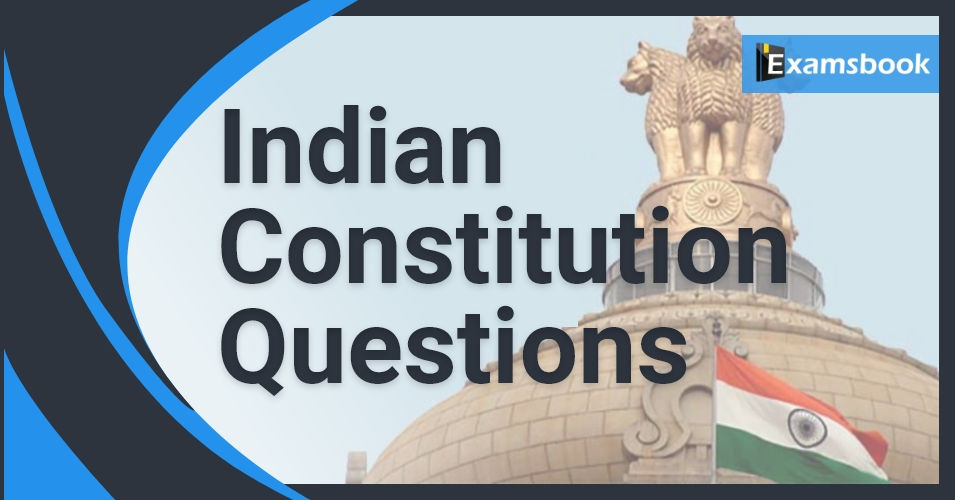Indian Constitution GK Questions and Answers for Competitive Exams [MCQ]

Non-granting minority institutions are excluded from the purview of the RTI Act due to the following fundamental rights granted by the Indian Constitution:
(A) Article 16
(B) Article 19 (1) (c)
(C) Article 29
(D) Article 30 (1)
Correct Answer : D
Explanation :
Unaided minority institutions have been excluded from the ambit of RTE Act due to Article 30(1) of the Indian Constitution.
Which Article is related to "Abolition of Untouchability”?
(A) Article 20
(B) Article 19
(C) Article 18
(D) Article 17
Correct Answer : D
Which Article is for "Protection of interests of Minorities”?
(A) Article 26
(B) Article 27
(C) Article 29
(D) Article 30
Correct Answer : C
Which article of the constitution provides the parliament the power to amend constitution?
(A) 370
(B) 370
(C) 390
(D) 376
Correct Answer : B
Money bill can only be introduced in the
(A) Lok Sabha
(B) Rajya Sabha
(C) Joint Session of both house
(D) None of these
Correct Answer : A
Finance bill of Indian Government is presented in –
(A) Upper House
(B) Middle House
(C) Lower House
(D) Raw House
Correct Answer : C
The first mid-term elections for Lok Sabha were held in –
(A) 1971
(B) 1975
(C) 1976
(D) 1985
Correct Answer : A
Which is the house where the Chairperson is not the member of that house –
(A) Lok Sabha
(B) Vidhan Parishad
(C) Rajya Sabha
(D) Vidhan Sabha
Correct Answer : C
The upper house of Indian Parliament is known as –
(A) The Rajya Sabha
(B) The Lok Sabha
(C) The Vidhan Sabha
(D) The Vidhan Parishad
Correct Answer : A
The Constituent assembly that met on 9th Dec 1946 was chaired by:
(A) Dr. Rajendra Prasad
(B) Dr. B.R. Ambedkar
(C) Dr. Sachchidananda Sinha
(D) Jawaharlal Nehru
Correct Answer : C



